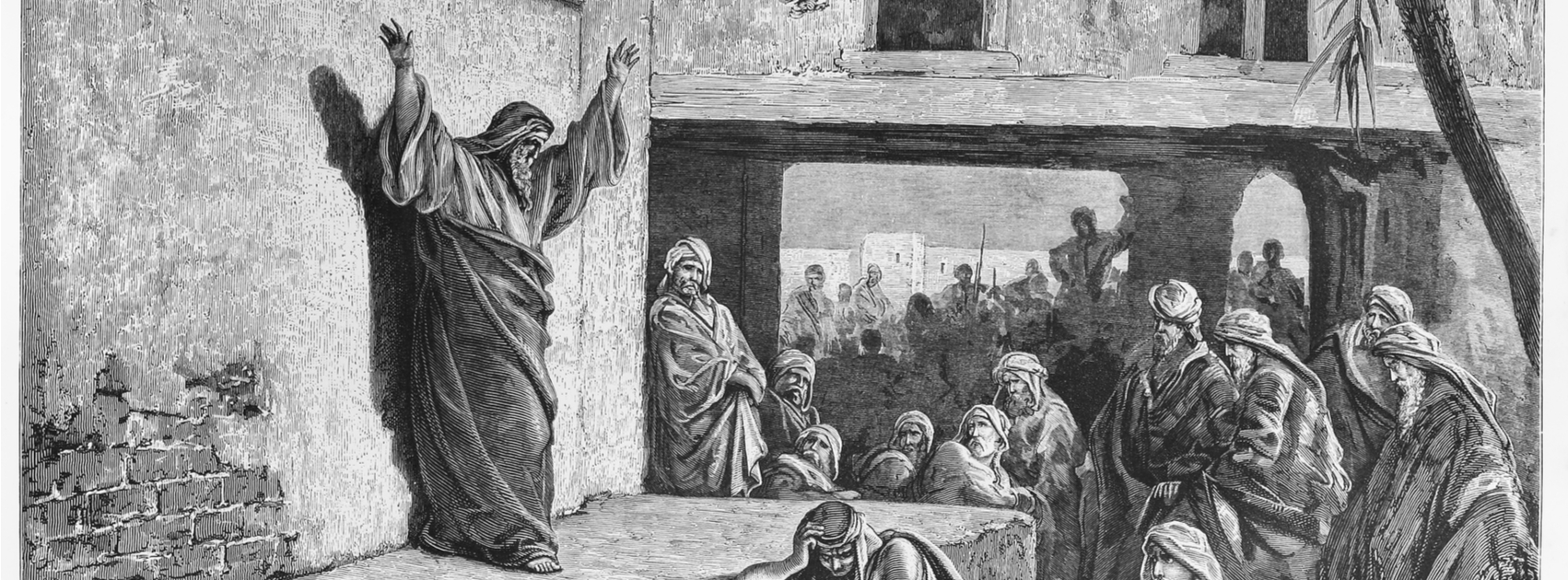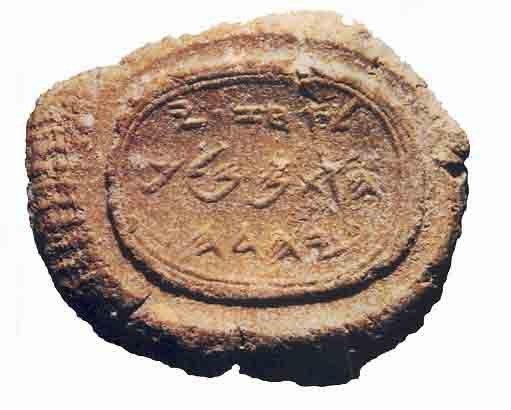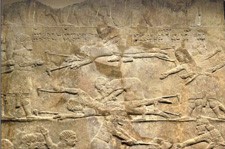The Importance of Prophets – Part 6

In our journey through this series, we have taken an interesting look at the basic importance of the biblical prophets and identified the ‘who’ and ‘what’ of both the major and minor prophets of the Bible. In Parts One and Two, we focused on the three ‘major’ prophets—Isaiah, Jeremiah, and Ezekiel—before turning our attention to the ‘minor’ prophets in Parts Three, Four, and Five.
In this part of the series, we will continue to examine the ‘minor’ prophets and the role they played in the Word…
‘Minor’ Prophets of the Old Testament:
As we discovered in Part-One of this series there are—according to some sources—two classifications of Old Testament prophets…
One classification being ‘major’ prophets: commonly consisting of three prophets—some sources include Daniel as a fourth—who have the largest prophetic texts and written oracles pertaining to future events, such as, the destruction and recreation of Israel, and the coming of Messiah. These ‘major’ prophets include: Isaiah, examined in Part-One, and Jeremiah and Ezekiel in Part Two.
The second classification is ‘minor’ prophets: those who did not write extensive texts and oracles but were still chosen and valued of God. These prophets include: Hosea, Joel, Amos, Obadiah, Jonah, Micah, Nahum, Habakkuk, Zephaniah, Haggai, Zechariah, and Malachi. In Parts Three, Four, and Five of this series, we examined Hosea, Amos, Jonah, Joel, and Obadiah.
Finally, while the majority of the Old Testament prophets fall into these two categories, there are some, such as, Elijah, Elisha, Samuel, Nathan, and occasionally, Daniel, who are not categorized as either ‘major’ or ‘minor’ prophets despite their biblical and prophetic importance. These prophets we will simply categorize as ‘Old Testament Prophets.’
Micah:
Micah, like his counterpart, the prophet Isaiah, acted as a prophet during the reign of as many as four kings of Judah—speaking the Word of the Lord to them, be they good or evil, and doing as the Lord commanded all the days of his life.
| Kings During the Time of Micah | ||
| Prophets | Kings | Years (B.C.) |
| Micah? and Isaiah in Judah
Amos, Hosea, & Jonah in Israel |
Uzziah
(or Azariah) |
767-740 |
| Micah and Isaiah in Judah
Amos, Hosea, & Jonah in Israel |
Jotham | 748-732 |
| Micah and Isaiah in Judah
Amos, Hosea, & Jonah in Israel |
Ahaz | 732-716 |
| Micah and Isaiah in Judah
Amos, Hosea, & Jonah in Israel |
Hezekiah | 716-687 |
Yet, even though Micah was living and acting as a prophet in Judah, many of his prophecies were related to Samaria, the Kingdom of Israel.
So, what was occurring that God should have prophets in both Judah and Israel speaking out against them—particularly Israel?
Well, even with the words of the prophets Amos, Hosea, and Jonah, none of the kings of Israel were following God, but blatantly disobeying Him! Not only by following false gods, but by ignoring His law and engaging in every kind of evil.
“Therefore I will make Samaria a heap of ruins in the field…”—Micah 1:6
Yet, while many kings of Judah were following God during this time of prophecy, some did not, and their disobedience gave way to prophecies of what would someday come to them, like Samaria…
“For her wounds are incurable.
For it has come to Judah;
it has come to the gate of My people—
to Jerusalem.”—Micah 1:9
Still, when was the book of Micah written? How long was it before Israel’s destruction?
The book of Micah at its start has a prophecy of God’s judgement on Israel, so we know that Micah’s word from God came before the Assyrian invasion in 722 B.C., and subsequent captivity of Israel’s people. Additionally, we know that the prophecy came after the time of King Uzziah. Therefore, the book of Micah was likely written a mere ten to twenty years before the destruction of the kingdom of Israel, making Micah’s prophecy one of the swiftest to come to fruition within the pages of the Word!
Yet, besides having one of the swiftest completed prophecies in the Word, Micah also has some of the slowest… in addition to God’s promises to restore Israel, His pleading with His people, and His warnings from God about lying prophets, wicked kings, and evildoers.
“I will surely assemble all of you, O Jacob,
I will surely gather the remnant of Israel;
I will put them together like sheep of the fold…
Their king will pass before them,
with the Lord at their head.”—Micah 2:12-13
In the fifth chapter of Micah we read a prophecy of the coming of Messiah—Jesus—and how He would be born in Bethlehem… a prophecy that was over 700 years before its fruition! Yet, slower still, a prophecy which has been yearned for since it was laid can be found in the fourth chapter of Micah of the Lord’s reign in Zion—the second coming of Messiah!
“Now it shall come to pass in the latter days that the mountain of the Lord’s house
shall be established on the top of the mountains, and shall be exalted above the hills;
and peoples shall flow to it. Many nations shall come and say,
‘Come, and let us go up to the mountain of the Lord, to the house of the God of Jacob;
He will teach us His ways, and we shall walk in His paths.’
For out of Zion the law shall go forth, and the word of the Lord from Jerusalem.
He shall judge between many peoples, and rebuke strong nations afar off;
they shall beat their swords into plowshares, and their spears into pruning hooks;
nation shall not lift up sword against nation, neither shall they learn war anymore.”—Micah 4:1-3
“…So the Lord will reign over them in Mount Zion from now on, even forever.”—Micah 4:7
So, while Micah in his lifetime knew of evil kings and saw through God their destruction, he was also blessed with the honor of prophesying not only of the first coming of Messiah, but the second as well!

(Source: Biblical Archaeology Review. Bulla reads: “Belonging to Ahaz (son of) Yehotam, King of Judah.”)
Nahum:
Nahum, in the Word, is not specifically named as a prophet to the kings of Judah, yet, it is largely suspected that he was one of the prophets—sometimes referred to as ‘seers’—who were sent by God to King Manasseh. King Manasseh did great evil in the sight of the Lord and failed to listen to the prophets… his disobedience leading him to become a captive of Assyria at the end of his life—only then realizing that God was the only god.
“Now the rest of the acts of Manasseh, his prayer to his God, and the words of the seers who spoke to him in the name of the Lord God of Israel, indeed they are written in the book of the kings of Israel.”—2 Chronicles 33:18 (emphasis added)
Besides Manasseh, Nahum may have prophesied to as many as all six of the kings to follow. However, even though Nahum may have likely written the book of Nahum between 662 and 613 B.C.—after the conquest of Thebes by Ashurbanipal II in 663 B.C., and before the fall of Nineveh in 612 B.C.—we have no specific biblical reference to the kings in question and can only make educated assumptions.
| Final Kings of Judah | ||
| Prophets | Kings | Years (B.C.) |
| Nahum? | Manasseh | 687-642
(reigned 55 years according to the Word; 45 years shown in certain historical sources, however, since Manasseh began his reign at the age of 12, the 10 year discrepancy may be due to his possibly having a regent until coming of age.) |
| Nahum? | Amon | 642-640
(reigned two years) |
| Nahum?, Habakkuk, Zephaniah, Jeremiah, & Ezekiel | Josiah | 640-608
(reigned 31 years according to the Word) |
| Nahum?, Habakkuk, Zephaniah, Jeremiah, & Ezekiel | Jehoahaz | 608
(reigned 3 months) |
| Nahum?, Habakkuk, Zephaniah, Jeremiah, & Ezekiel | Jehoiakim | 608-597
(reigned 11 years) |
| Nahum?, Habakkuk, Zephaniah, Jeremiah, & Ezekiel | Jehoiachin | 597
(reigned 3 months & 10 days) |
| Nahum?, Habakkuk, Zephaniah, Jeremiah, & Ezekiel | Zedekiah | 597-586
(reigned 11 years until the captivity of Judah by the Babylonians in 586) |
Interestingly, despite Nahum’s being from Galilee and prophesying in Judah, the book of Nahum speaks exclusively of the destruction of Nineveh—which came to pass in 612 B.C. For while Nineveh repented during the days of Jonah, over one-hundred years had passed and they, during subsequent generations, returned to the evil they once knew…
“Woe to the bloody city!
It is all full of lies and robbery.
Its victim never departs.
The noise of a whip… of rattling wheels,
of galloping horses, of clattering chariots!
Horsemen charge with bright sword and glittering spear.
There is a multitude of slain,
a great number of bodies, countless corpses—
they stumble over the corpses—
because of the multitude of harlotries of the seductive harlot…
‘Behold, I am against you,’ says the Lord of hosts…”—Nahum 3:1-5
Still, while the book of Nahum speaks plainly of the ills of Nineveh and of the Lord’s disfavor of her, archaeology confirms this truth. Even in the below depiction we see the people of Nineveh torturing God’s people, flaying them alive… and this is not the only ill that history remembers of Nineveh.

(Source: biblearchaeology.org. Portion of relief depicting Elamites being tortured during the time of Ashurbanipal. From the palace of Sennacherib at Nineveh, now in the British Museum.)
Finally, while we do not know if he lived to see the actual destruction of Nineveh, Nahum well knew God’s plans for the city, as well as the evils done in Nineveh. And aside from possibly being a prophet during the time of the good king, Josiah, Nahum sadly knew few who followed after God aside from some fellow prophets of the time…
“Blessed are you when they revile and persecute you, and say all kinds of evil against you falsely for My sake. Rejoice and be exceedingly glad, for great is your reward in heaven, for so they persecuted the prophets who were before you.”—Matthew 5:11-12
During the course of this series we will continue to look further into the lives of the prophets of the Word. We will see how the prophets of the Old Testament prophesied not only of what was about to occur—or would occur without action—but, how they laid out prophecies which not only came about during the days of Jesus, but are still coming to pass to this day!
Finally, we will examine New Testament prophets and how, from the book of Matthew to Revelation, what was and is to come, was revealed to us in part…
